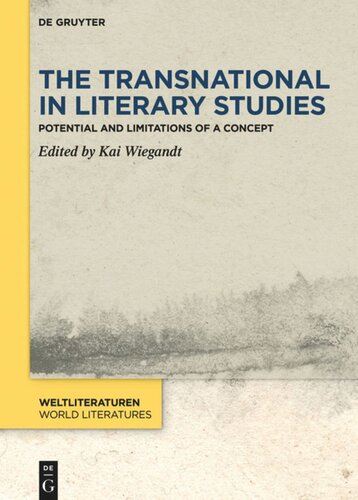

Most ebook files are in PDF format, so you can easily read them using various software such as Foxit Reader or directly on the Google Chrome browser.
Some ebook files are released by publishers in other formats such as .awz, .mobi, .epub, .fb2, etc. You may need to install specific software to read these formats on mobile/PC, such as Calibre.
Please read the tutorial at this link: https://ebookbell.com/faq
We offer FREE conversion to the popular formats you request; however, this may take some time. Therefore, right after payment, please email us, and we will try to provide the service as quickly as possible.
For some exceptional file formats or broken links (if any), please refrain from opening any disputes. Instead, email us first, and we will try to assist within a maximum of 6 hours.
EbookBell Team

4.1
90 reviewsThis volume clarifies the meanings and applications of the concept of the transnational and identifies areas in which the concept can be particularly useful. The division of the volume into three parts reflects areas which seem particularly amenable to analysis through a transnational lens. The chapters in Part 1 present case studies in which the concept replaces or complements traditionally dominant concepts in literary studies. These chapters demonstrate, for example, why some dramatic texts and performances can better be described as transnational than as postcolonial, and how the transnational underlies and complements concepts such as world literature. Part 2 assesses the advantages and limitations of writing literary history with a transnational focus. These chapters illustrate how such a perspective loosens the epistemic stranglehold of national historiographies, but they also argue that the transnational and national agendas of literary historiography are frequently entangled. The chapters in Part 3 identify transnational genres such as the transnational historical novel, transnational migrant fiction and translinguistic theatre, and analyse the specific poetics and politics of these genres.